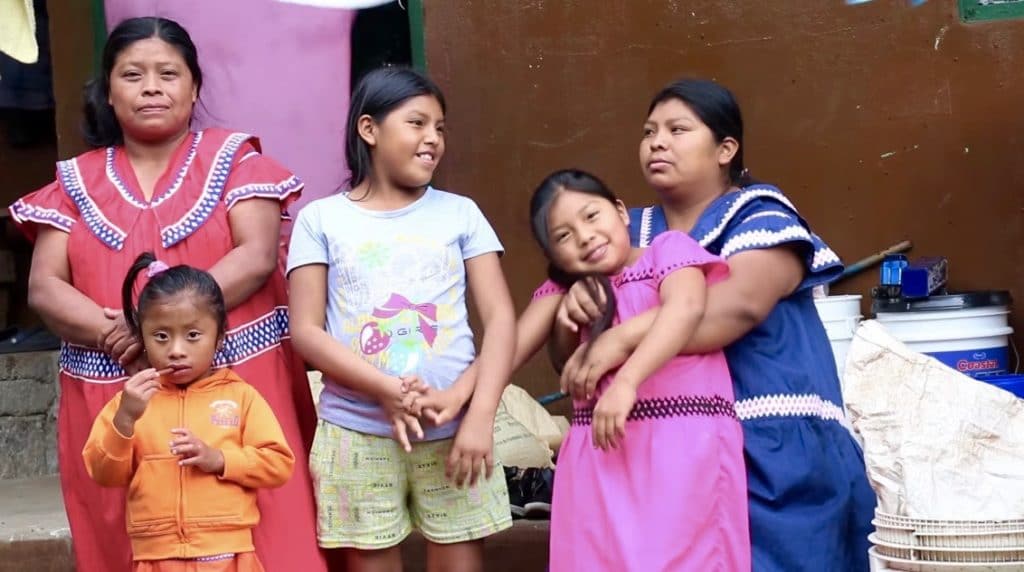
Gaining Access to Indigenous Voices
Sara Canals is a journalist specialized in international affairs undertaking a Master’s program in Global Affairs at New York University with a Fulbright Scholarship. Sara Canals has years of experience in several European media companies, mostly in Barcelona and Andorra. She has been a scriptwriter for historical documentaries, hosting radio shows, reporting for public televisions, writing columns for newspapers, and working as an account executive for strategic communication consultancies. Through a Workshop in Applied Peacebuilding (NYU) Sara Canals travelled in Costa Rica and Panama as a Fellow for International Peace Park Expeditions to direct and produce Transcending Boundaries: Perspectives from Parque Internacional la Amistad.
Transcending Boundaries: Perspectives from Parque Internacional la Amistad will have its world premiere at the 24th Annual Environmental Film Festival in the Nation’s Capital. The film screening takes place at Woodrow Wilson International Center for Scholars on Wednesday, March 23th at noon.
DCEFF: How did you get involved in filmmaking?
SARA CANALS: After working as a scriptwriter for historical documentaries and reporting the news for different Spanish and Andorran televisions, I decided to challenge myself by producing my own stories. Coincidentally, moving to New York for my studies in Global Affairs at NYU was the perfect opportunity to put my skills into practice. I got myself a videocamera and filmed my first story in Cuba, where I documented perspectives from Cubans of various socioeconomic background with regard to the new diplomatic relations between the United States and Cuba and potential impacts of the embargo on their lives and the country. Panama and Costa Rica were the next locations to produce my second story.
DCEFF: What drew you to this particular project?
SC: I met Todd Walters through a Workshop in Applied Peace-building (NYU). He is the executive director of International Peace Park Expeditions (IPPE)—a non-profit-organization that works with communities located in transboundary protected areas to foster local development efforts. IPPE gave me the chance to travel to Parque Internacional La Amistad, a UNESCO World Heritage park located on the border between Panama and Costa Rica. During my trip, I investigated and reported the main challenges for the indigenous tribes and local communities in protecting the park.
DCEFF: What challenges did you face in the process of producing the project?
SC: The most challenging aspect of producing Transcending Boundaries: Perspectives from Parque Internacional la Amistad was to gain access to the indigenous communities settled in the buffer zone of the heritage. It actually took me several days to find a way and build rapport with some of the key members of the Ngöbe-Buglé (Panama) and Bribri (Costa Rica) tribes. With the help of local organizations, I was able to interview a few Ngöbe-Buglé and Bribri tribe members. In some occasions, I was even invited to their homes and met some of their families.
DCEFF: What made you decide to submit to DCEFF, this year?
SC: International Peace Park Expeditions encouraged me to submit my documentary to DCEFF. It will be the perfect chance to give voice to the Panamanian and Costa Rican indigenous tribes and local communities facing difficulties with protecting the transboundary park—challenges they have been facing for several years with little response from their governments. Being able to tell their story at DCEFF will help those communities to raise awareness of their efforts to preserve the transboundary protected park at an international scale.
DCEFF: Why do you think DCEFF is important? Why should people attend?
SC: DCEFF is an excellent way to promote the endeavors that communities around the world are implementing to protect the environment. By sharing their stories and their methods to help the world become a more sustainable place, DCEFF becomes the perfect platform for the people worldwide willing to learn to safeguard and preserve the environment through innovative and sustainable practices, such as environmental education, organic production and ecotourism.
DCEFF: How does your film relate to this year’s theme: “Parks: Protecting Wild?”
SC: Parque Internacional La Amistad is the largest protected area in Central America and one of the UNESCO’s World Heritage Site. The film exposes the main challenges that local communities and indigenous tribes have been facing to protect the park, such as the construction of hydroelectric power plants in the buffer zone, an agriculture sector heavily reliant on fertilizers and pesticides, fire fights, massive hunting, and deforestation.
Register for the Transcending Boundaries: Perspectives from Parque Internacional la Amistad screening here.
Find us on Facebook, Twitter and Instagram for more film and event updates. Follow #DCEFF to stay connected with the Festival.

